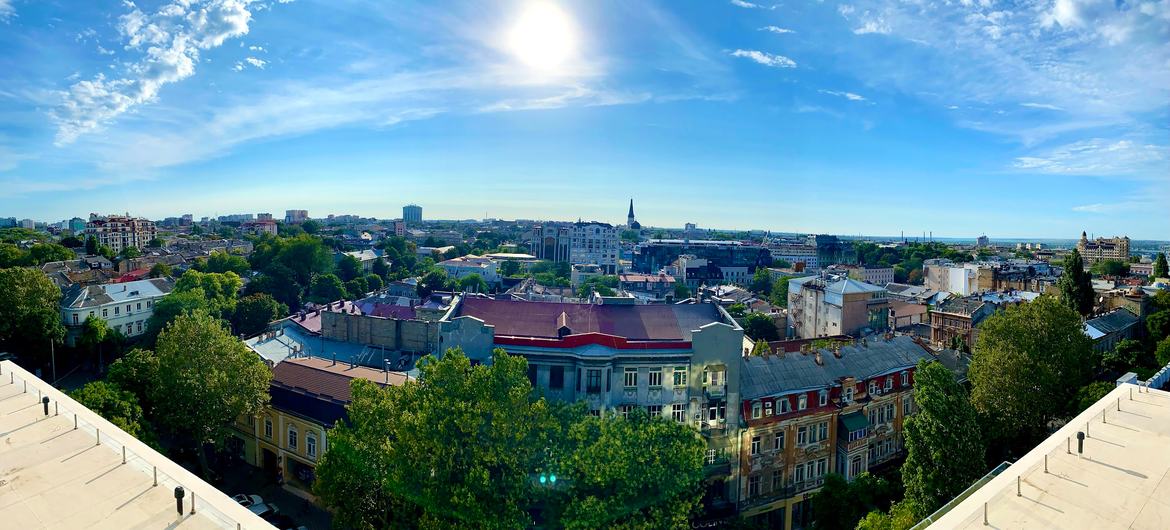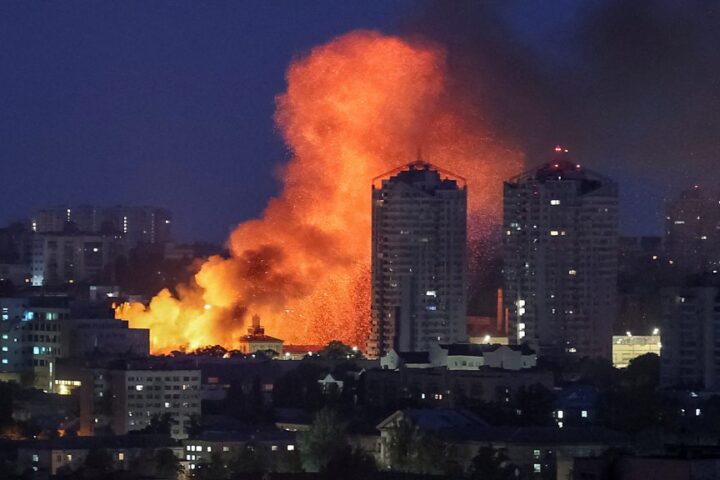This decision recognizes the outstanding universal value of the site and the duty of all humanity to protect it.
‘Reinforced protection’
“Odesa, a free city, a world city, a legendary port that has left its mark on cinema, literature and the arts, is thus placed under the reinforced protection of the international community,” said Audrey Azoulay, Director-General of UNESCO.
“While the war continues, this inscription embodies our collective determination to ensure that this city, which has always surmounted global upheavals, is preserved from further destruction.”
The decision commits the 194 States Parties of the Convention – which includes Russia – not to undertake any deliberate step that may directly or indirectly damage the World Heritage site and to assist in its protection.
The Historic Centre of Odesa has also been inscribed on the more than 50-strong List of World Heritage in Danger, which gives it access to reinforced technical and financial international assistance.
Ukraine may request this, to ensure the protection of the property and, if necessary, assist in reconstruction, if attacked.
Accelerated procedure
In view of the threats to the city from Russia armed forces and irregulars, the World Heritage Committee used an emergency procedure provided for by the World Heritage Convention.
As early as the summer of 2022, UNESCO linked international experts with Ukrainian experts to prepare the nomination, with the support of Italy and Greece.
Ukraine’s President Zelensky made the submission official in October 2022, and the nomination was evaluated over the following weeks.

Historic Odesa’s city centre, with anti-tank and other defensive measures now in place amidst the Russian invasion.
Emergency measures
In parallel with the inscription process, UNESCO implemented emergency measures on the ground to help protect the site.
Notably, the Organization ensured repairs were carried out following damage inflicted by Russian attacks, on the Odesa Museum of Fine Arts and the Odesa Museum of Modern Art.
So far, the historic western Ukrainian city has not come under the kind of sustained bombardment that laid waste to the once-thriving port city of Mariupol, hundreds of kilometres to the east.
Digital safekeeping
UNESCO also provided equipment for the digitization of nearly 1,000 works of art and of the formal collection of the Odesa State Archives. Equipment was also delivered to protect the buildings as well as open-air works of art on display.
These measures are part of UNESCO’s overall action plan for Ukraine, which has already mobilized more than $18 million to preserve education, science, culture and information, as the battle for control of the country rages on.

















